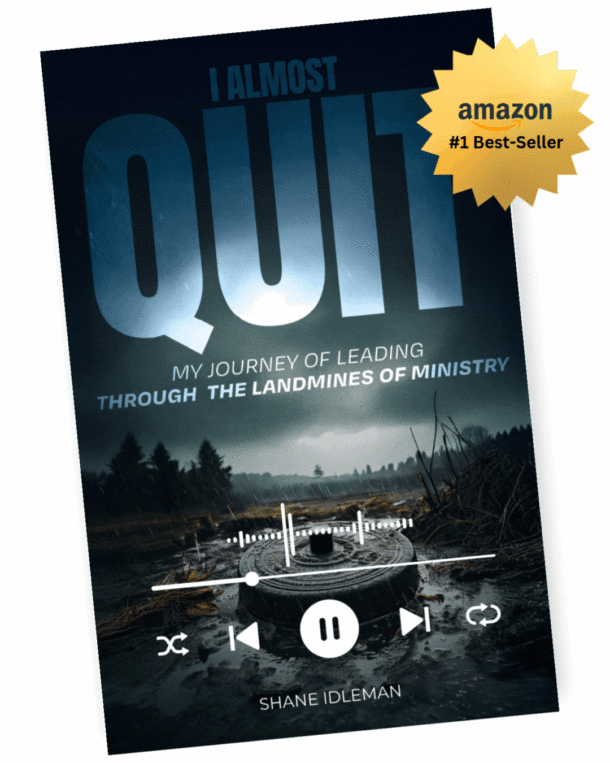By Shane Idleman
I recently spent a few days alone in a cabin to slow down, reflect, and pray—to renew my mind. The importance of time alone with God is invaluable. Renewal begins and ends with prayer. “When faith ceases to pray, it ceases to live” (E.M. Bounds).
To renew means “to reestablish something after an interruption.” Life can easily interrupt fellowship with God. We are renewed through prayer and time alone with Him. As a matter of biblical fact, mighty fillings of the Spirit often occurred after extended times of prayer.
During this time of retreat, I was reminded that the overall spiritual condition of Westside Christian Fellowship in 2012 will be a reflection of my prayer life. E.M. Bounds believed that without prayer in the pulpit, “The church becomes a graveyard, not an embattled army. Praise and prayer are stifled; worship is dead. The preacher and the preaching encourages sin, not holiness…preaching which kills is prayerless preaching. Without prayer, the preacher creates death, and not life.” You may ask, “What does this have to do with me; I’m not a pastor?” Everything! Prayer moves the hand of God.
Why is there a lack of conviction today? The reason may not be in the pew, but in the pulpit. Much depends on the prayer life of the preacher. William Bramwell, a powerful Methodist circuit rider, often spent hours a day on his knees to sustain his preaching. It was not uncommon for the great Scottish preacher, John Welch, who died in 1622, to spend hours in prayerful sermon preparation. Robert Murray M’Cheyne, one of Scotland’s most anointed preachers, was a powerful man of prayer. The Puritans, as the result of much prayer, produced some of the greatest writings and devotional material that the church has ever known. And, I am sure, this can be said of anointed writers today. Prayer is the first sign of a spiritually healthy church, and a spiritually healthy pastor.
Pastors, preachers, and teachers must spend extended time in prayer to be truly effective—God prepares the messenger before we prepare the message. Luther’s motto, “He that has prayed well has studied well,” rings true.
Moses spent time on the backside of the desert before leading Israel out of bondage. Elijah heard the still small voice of God alone in a cave. Jacob wrestled with God in the stillness of the night and his name was changed to Israel. John the Baptist lived alone in constant prayer with God. Jesus often retreated to isolated places for extended times of prayer. How then are we to lead the church in these dire times if we do not cultivate a strong prayer life? The depth of our relationship with God is in direct proportion to the depth of our prayer life. Prayer matters.
Great men and women of prayer have always been great men and women of conviction. There must also be conviction in a true spirit-filled church. Unless people are challenged and convicted, they rarely change. Never, in all of Scripture, are we encouraged to make people feel comfortable in sin. God-given conviction is always good.
Prayer and conviction are inseparable, as seen in the life of Christ. Theologians have rightly identified Christ’s role as prophet, priest, and king, but prophet is often the most controversial. A prophet would encourage and build, but they would also warn, compel, challenge, and convict—they were not necessarily popular; they were often controversial. Pastors and preachers must balance the prophetic (convicting) with the pastoral (shepherding).
In addition to asking, “Will unbelievers feel welcome,” when evaluating the effectiveness of a church, we should also ask, “Will they feel convicted?” Conviction prepares the heart for repentance. One of the signs of a dying church is not necessarily the size of the church, but a general lack of conviction.
Jesus warned the lukewarm church in Laodicea, “I know your works, that you are neither cold nor hot. I could wish you were cold or hot. So then, because you are lukewarm, and neither cold nor hot, I will vomit you out of My mouth. Because you say, ‘I am rich, have become wealthy, and have need of nothing’—and do not know that you are wretched, miserable, poor, blind, and naked” (Revelation 3:15-17).
In this church, and many others, conviction is replaced with complacency. The Laodicea’s thought that they were in the center of God’s will. They were large, wealthy, and involved in the community, but Jesus said that they were “wretched, miserable, poor, blind, and naked.” Jesus’ strong words were meant to convict and challenge, not coddle and comfort.
The lukewarm church disdains the heat of conviction. Church history bears this out—men such as William Tyndale and John Huss were burned at the stake for convicting the Church. Martin Luther was asked to recant or face possible execution because of his convicting material. John Calvin experienced the same in Geneva, John Knox in Scotland, and Ulrich Zwingli in Switzerland.
Nevertheless, we are to embrace conviction, not run from it—“And the Lord God of their fathers sent warnings to them by His messengers [to convict them], rising up early and sending them, because He had compassion on His people and on His dwelling place. But they mocked the messengers of God, despised His words, and scoffed at His prophets, until the wrath of the Lord arose against His people, till there was no remedy.”
We must stop confusing God’s patience with His approval and preach with conviction from the pulpits again.

